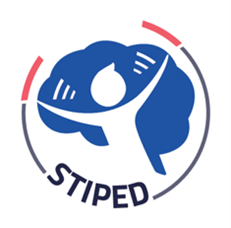STIPED - Noninvasive Brain Stimulation in Pediatrics

Target from STIPED is to investigate the safety, dynamic dose-response relationship, underlying mechanisms, and treatment effects of the innovative transcranial direct current stimulation (tDCS) intervention in children and adolescents with ADHD and ASD.
The following clinical studies are planned as part of the research project.
- Three Phase IIa randomized, double-blind, sham-controlled trials in ADHD and ASD to determine effect sizes and safety of standard TDCS use in clinical settings targeting central brain regions and disorder-specific cognitive tasks.
- A phase I clinical trial to systematically investigate the effects of brain development and age-related anatomical and functional characteristics on the effects of tDCS using methods of modern neurophysiology, neuroimaging, and electrical current modeling.
- Third, to investigate the mechanisms of tDCS on brain function and develop biomarkers to predict individual response to standardized and individualized stimulation protocols. Finally, to improve the applicability of tDCS in children and adolescents by developing an innovative personalized home-based treatment option in combination with an elementary health service to be tested in a fifth phase IIa clinical trial.
Subproject
Ethics subproject
The main objectives of the ethics work package are:
- To examine beliefs and attitudes toward the use of tDCS techniques in children and adolescents and to examine and address the concerns and expectations of patients and their families toward tDCS in pediatrics and child psychiatry.
- Present and address ethical issues of tDCS as a treatment and as a non-pharmacological neuroenhancement;
- Develop recommendations and policy proposals for tDCS in pediatrics.
- Systematic evaluation, discussion, and consultation on emerging research ethics issues throughout the life of the project.
In addition, the work package will assist all members of the consortium to strictly adhere to all standards of research ethics and good practice.
The work package is divided into the following tasks:
- Interview and survey study: This task includes the development of guidelines for semi-structured interviews with the target groups (patients, caregivers/families, health professionals and teachers) and a questionnaire for an international survey (also targeting healthy individuals). The information collected will support the development of a treatment strategy in a way that avoids ethical and social problems.
- Literature review, ethical mapping and analysis, PPI and policy development: a comprehensive ethical analysis will be conducted and the more theoretical neuroethical debates on brain stimulation and neuro-enhancement will be mapped to learn about the arguments exchanged and to introduce new arguments.
- Develop recommendations for the use of tDCS in the treatment of CPND: The work package will collaborate with patient and stakeholder groups, other researchers, and the general public to develop policy recommendations for how best to implement transcranial brain stimulation in practice.
- Internal ethical guidance: This is about providing internal support and guidance on research ethics issues that arise during the project.
Anna Sierawska, M. A., MSc
Tel.: +49 89 4140 7256
Mail: anna.sierawska@tum.de
Ismaninger Street 22, 81675 Munich
Project Management:
Prof. Dr. med. Alena Buyx
Period:
01.04.2017–30.06.2022
Project Type:
EU consortium
Funding source:
European Union's Horizon 2020 research and innovation program